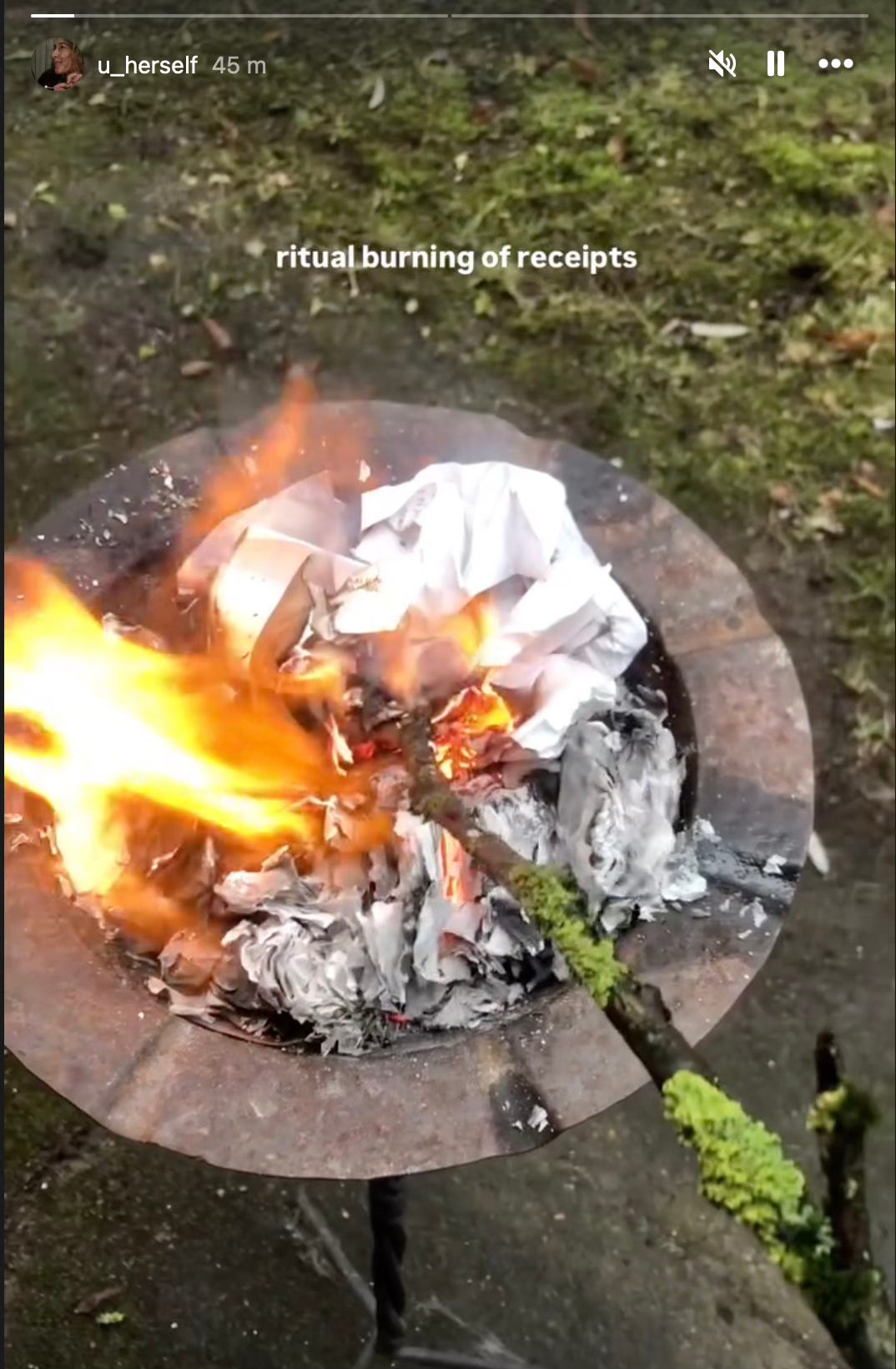On the 'Year in Review' as institution: Borges, Lot's wife, rear-views 🔥
Happy New Year + the best way to deal with the ephemera of year-end reflection...

Since December 1st, I gave myself the task of reviewing my year.
What this has looked like was reading through the small book I have for planning my days, and the a-bit-bigger folder than I keep for reviewing those days at night.
In each of these documents – the small book, the bigger folder – I set out the desires and doings of 24 hours, and then took a look at their near or far realisations. In each, I mapped some vague daily course, and did the slow work of course correction.
Throughout December, I read through a year’s worth of these entries with a couple of questions in mind, gathering notes and collecting impressions.
What I ended up with was 64 rambling pages, written to myself, for myself. Each line item accruing an event or thought or sensation taken from a year of living.
As I wrote this expanding summary, at times, I felt a bit like a character in one of Jorge Luis Borges stories, where the impulse to review time becomes as capacious as the time itself. The story I am thinking of in particular is ‘On Exactitude in Science’, in which Borges writes of an empire in which their map-making impulse is taken to such an extreme that the map of a single province occupies the entire city, and even that is not enough. They want and need the map to describe their empire exactly.
The story, which lasts (ironically) only a paragraph, turns quickly to the resolution of its central conflict. The excess desire of the map-makers is not resolved by the desiring, but by their ancestors, who care nothing of their elaborate descriptions of space:
“The following Generations, who were not so fond of the Study of Cartography as their Forebears had been, saw that that vast Map was Useless, and not without some Pitilessness was it, that they delivered it up to the Inclemencies of Sun and Winters. In the Deserts of the West, still today, there are Tattered Ruins of that Map, inhabited by Animals and Beggars; in all the Land there is no other Relic of the Disciplines of Geography.”
This post is not about Borges as a man, nor really about the uses of Borges’ story; the end of the year is not a time where I have the impulses or drive for literary criticism. It just is a recognition that sometimes the best thing you can do is to write the 64-page document for yourself and then forget about it. Destroy the thing.
This time of year is inundated with other people telling you how wonderfully or badly they have done in their own lives via every social channel. What I find most fascinating about this phenomenon of contemporary self-reflection is the extent to which it has become a public act, where the notion of contemplating meaning in one’s own life has to be instantly and swiftly commodified into content. But alas, I said now is not the time…and I am at risk of doing just that.
Instead, one of the best rituals of year ending and summation I have seen yet is one from a friend, who posted this perfect story that is a quiet conspirator to the generation in Borges’ story who lacks the drives for empire’s self-recreating, self-aggrandising, self-perpetuating exactitude:
The obvious thing for me to say next is that I burned my 64-page year in review, but the truth is that I didn’t. Instead, I made the choice that this writing, any and all of it, was what Peter Elbow talks eloquently about as “private writing”, a form and mode that is as close to the sacred as the 21st century will allow. All of that junk in there was written only for me.
Which brings to mind my favourite biblical woman; Lot’s wife. I have always identified with that kind of woman, whose nature is one made for disobedient retrospect, whose courage is to look at God’s destruction of Sodom and Gomorrah, daring enough to turn her neck when she was meant to flee. I think of her often in her punishment – the long, shapely pillar of salt that stands watchful guard over the destroyed cities – in scenarios that exceed the obvious association, including at this moment of time when we are supposedly encouraged to look at our own past, when it is seen not only as a fun thing to do, but also weirdly, presented as a kind of moral imperative. The issue with really looking back as Lot’s wife did is that that kind of looking requires the capacity to not balk, even when the consequences of looking are not as we would wish, even when we see that our own lives, our own worlds are not as we hoped. And this is something rarely done in public, rarely something you are inclined to talk to others about.
While it is wonderful to laud own’s own past achievements proudly, much like in the Borges story, public summation doesn’t typically serve the aims of other people, nor does it solve the question of a map. Again, and again, by way of the parable, more or less exactitude doesn’t necessarily create more space. But something about watching my friend burn the receipts derived from her unnameable purchases made me think a new thought: that the full-living of a life has nothing to do with self-serving descriptions or reviews, that all the bluster about what happened or didn’t happen in our personal worlds is just a way-post for pretended memory. What really happened, what really took place, is alive today in the consequences of the living.
With that – to 2025, where, for me, I suppose there is only forward…or only forward, with a bit of disobedient looking back?






